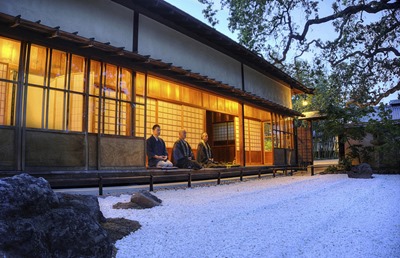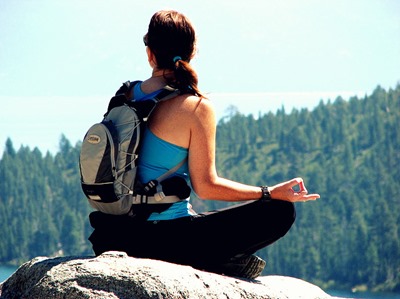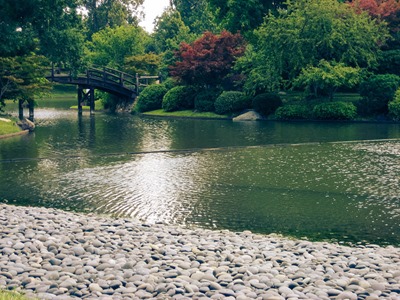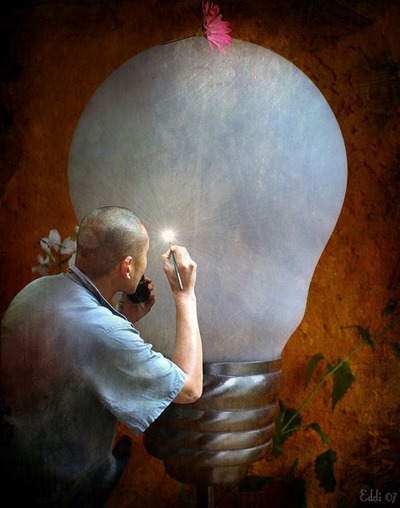A Simple Guide to Meditation: Watching River and Being Whole
I’ve received several emails and messages from readers asking about meditation. “Could you recommend a place to learn meditation?” “What’s the best way to start?” “Is it possible to learn meditation by myself?” “Is meditation difficult?” “What are the techniques?”
The questions reveal a great deal how widely misunderstood meditation is. Meditation is really very simple. Yet it is the most transformational practice I know. With this article, I want to open a door to meditation that you can choose whether to walk through.
When you picture the zendo, and the Zen practitioners sitting in lotus position on black cushions, you think they are doing something fancy or otherworldly or complicated. But really, what we do in Zen is just to sit. We sit. We breathe. We watch our thoughts and emotions come and go as passing cloud while noticing our composure. That’s it. It is very simple. So simple that it is very difficult.
Physically, we maintain our sitting composure: straight back, long spine, legs crossed, neck straight – neither tilt forward or backward, palm down with fingers on knees, or palm up with fingers forming the mudra (when the thumb touches one of the other finger), sitting tall, but no stress. We don’t need to cross our legs in lotus to be able to meditate. If you can’t even sit on the floor, sit on a chair. But the straight spine is important. Basically, we just sit.
- What do you do in your head? What do you think about? Do you talk to yourself during meditation?
Many asked me this. My answer is no. We don’t talk to ourselves during meditation. In fact, we do not do anything mentally during meditation. We only observe. Like sitting next to a river, watching thoughts and emotions flowing with the streams. We don’t pick anything up from the river. We just watch. From one thought to the next. From one emotion to the next. That’s all we do.
Again, this is very simple. So simple that it’s very hard. Our life has been always run by our ego. And ego wants to interfere in everything, whether by actions or thoughts, it wants to control. But meditation is all about letting go of control. So as to be completely present for the experience that unfolds here and now.
Very often, you will find your mind drifting away from the presence. The tendency is to get involved with a thoughts or emotions that passed through. Like you pick up a paper boat from the river. But simply to be aware when that happens is already a new level of consciousness. Here what you do is simply giving the paper boat back to the river. Gently bring yourself back to presence by noticing your breaths.
Don’t get involved with the fact that you got involved. “Oh my God! I wasn’t present again! Oh my God! My mind is so dumb.” Don’t do that. Simple said “Oh! I wasn’t present.” And breath. We don’t meditate to make progress. The drifting away is the progress. The trying is the progress. The acknowledge non-presence is presence.
Having that said, sitting isn’t the only way to meditate. You can meditate while doing any life activity. Some call this “active meditation”. Cooking, driving, eating, bathing, washing the dishes, cleaning the house, doing work,… anything that is done with complete presence - complete abandonment of the ego - is meditation itself. My favorite is cooking, writing, and walking meditation. I practice yoga every day, and yoga is meditation – a profound way to meditate the body, thus inviting the mind to follow to inner peace.
Natalie Goldberg quoted her Zen Master in Writing Down the Bones:

When you do zazen [sitting meditation], you should be gone. So zazen does zazen. Not Steve or Barbara does zazen.
With its chattering voices, the ego divides your attention. It makes you divided. That’s why most of the time you are not 100% there for any experience. When you wash the dishes, you think about the dessert. When you eat dessert you think about the emails. When you read emails you think about the movies. And so on. Life has never been lived. When you are 100% – when you are whole – you have no sense of yourself. The washing dishes does the washing, not Milena does the washing. And washing dishes turns out to be quite a pleasant experience.
From washing dishes, to writing a song, to designing a new system; whenever you are whole, you always do your best. This is one among many benefits of meditation. It teaches us to be whole for life.
- So from where do I start?
Start precisely where you are. Notice. Notice now. Notice the pace of your breaths. Notice the nuance of your heartbeats. Notice the skin between your eyebrows. Notice your shoulders. Notice your neck. Notice your spine. Notice the dog’s barking in the distance. Notice the sound of your mother’s making dinner in the kitchen downstairs. Notice the light and the scent in your room, the half-full cup of tea. Now close your eyes. Go inward. Observe. What are you seeing in the river?




